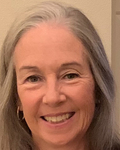 |
Carla Cobb, PharmD, BCPP Past President and Judith J. Saklad Memorial Award Recipient |
Since the initial AAPP annual meeting in Orlando, Florida in 1998, with Gary Levin as the first president, the organization has changed significantly. AAPP’s numbers have grown more than ten-fold but, most importantly, its impact has grown exponentially.
Founders and past leaders wholeheartedly agreed on one thing - “From day one AAPP’s primary focus was -- the patient,” says Glen Stimmel, a pioneer of psychiatric pharmacy and past president. “It was a place to learn from each other to improve patient care, and that should continue to be the focus into the future.”
Early goals, per Levin, included establishing AAPP as the place where experts go to ”learn and advocate for the profession, advocate for our patients, increase training opportunities, and promote research.” Thanks to the work of early members, much of this was accomplished in the first 15 years. The next 10 years brought expansion of the profession - engaging students, expanding continuing education offerings, establishing the Mental Health Clinician, and forming the AAPP Foundation. Levin credits the work of our executive director from day one, Brenda Schimenti, along with our other dedicated staff for their efficient management of a still largely volunteer workforce. Their commitment to advancing our profession sets an example for professional organizations nationwide.
Founding member Joni Fowler notes that in the late 90s and early 2000s, AAPP’s fledgling years, there was a boom in new medications. Regimens were complex, often relegated to specialty care, and surrounded by stigma. In recent years mental health has become a common conversation in the media, among college student, and the lay public. Access to care has improved with people living with psychiatric disorders able to receive care in primary care settings and even receive long-acting antipsychotic injections in community pharmacies. Psychiatric pharmacists have also adapted to change along the way, most recently contributing to solutions for the COVID and opioid epidemics.
Past-president Roger Sommi notes the significant progress in AAPP’s Profession and Government Affairs over the years. We now have a “seat at the table” with other pharmacy organization through membership in the Joint Commission on Pharmacy Practice (JCPP), the Mental Health Liaison Group, and other interprofessional coalitions.
Although much has been accomplished over the past 25 years there is still much work to do. People living with mental illness often die at an early age due to inadequate treatment of somatic conditions. They are burdened by stigma and other social determinants of health. Access to treatment is limited by lack of parity and has been magnified by the COVID epidemic and dwindling numbers of psychiatric providers.
AAPP and its members recognize that psychiatric pharmacists are part of the solution. Staff, volunteers, members, and consultants work every day to drive change and make a difference in the lives of our patients. This is beyond just a job – this is our passion.
Charlie Caley, past president and 2023 Judith J. Saklad award recipient, encourages members to “recognize the opportunities of the future, extend your reach, and follow your hearts. The ultimate recipients of your efforts are our patients, for we exist to serve them.” Sommi encourages future leaders to continue engaging strategic partners as “a stepping stone to get that next piece of the puzzle in place. Be creative – go where others aren’t going. And have fun! AAPP will open doors for you personally and professionally that will last a lifetime – I know that much of my success grew from the connections I made at AAPP.”
It is inspiring to see so many founding members, many now retired, still active in the organization. They participate on committees and task forces, and attend annual meetings to learn and to network with friends and colleagues, old and new. This exemplifies the strength of the organization as former leaders meet and work alongside new members. They see young leaders who are motivated, talented, and passionate about making a difference in the lives of our patients and are confident that the future of AAPP is in good hands.
Stimmel sums up his message to emerging leaders. “Beware of status-quo huggers! Don’t just be part of a specialty that interests and excites you - question, challenge, and occasionally object. Take it on as your responsibility to make the profession better.”
